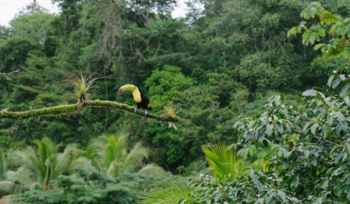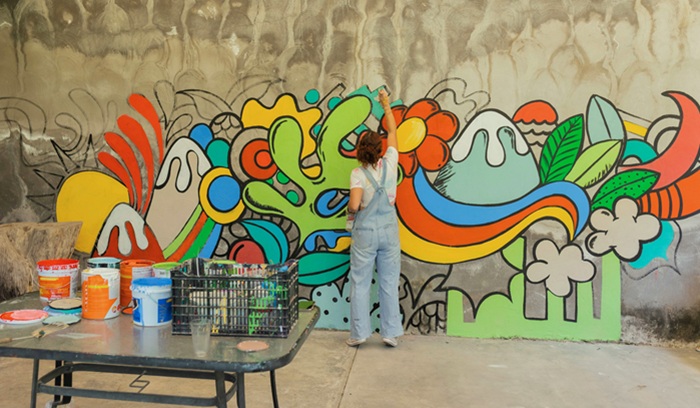Ireland has cemented its commitment to the arts and culture sector with a historic decision. The government has made its basic income pilot program for artists a permanent, enshrined national policy. This move provides a stable, foundational income for creative workers across the country. It is a powerful affirmation that art and culture are essential public goods.
This initiative positions Ireland as a global leader in supporting creative labor. It recognizes that economic stability is vital for artistic innovation. The program is designed to foster a thriving, resilient cultural sector for generations.
Unlocking Artistic Freedom and Innovation
The core positive impact of the permanent basic income is the liberation of artistic time. By receiving a predictable, non-conditional income, artists can dedicate themselves fully to their creative practice. This removes the economic pressure that often forces creators into precarious side jobs. This stability allows for deeper, more ambitious projects that would otherwise be impossible.
The program supports a wide range of creative workers, including visual artists, writers, musicians, and performers. The certainty of income allows artists to take greater risks with their work. This investment is expected to lead to a flourishing of cultural output and innovation across all artistic disciplines. Research consistently shows that economic security directly enhances creative production.
A Model for Sustainable Cultural Policy
The decision to make the program permanent follows a highly successful pilot phase. Data from that phase demonstrated the clear benefits of economic stability. The pilot provided approximately 2,000 artists with a weekly payment for three years. This guaranteed income allowed recipients to focus intensely on their art.
This model serves as a practical, evidence-based blueprint for other countries. It proves that direct investment in the basic welfare of artists is highly effective. It ensures that cultural production remains a priority, even during periods of economic uncertainty. This innovative policy is a major step toward creating a truly sustainable cultural sector. You can find information about the pilot program and its results from the Arts Council of Ireland.
Strengthening National Identity and Economy
This basic income program is a strategic investment in Ireland’s national identity. Irish culture, driven by its vibrant artistic traditions, is a globally recognized asset. By sustaining its artists, the nation is reinforcing its unique cultural heritage on the world stage. This cultural strength translates into significant benefits for the tourism and creative industries.
The arts and culture sector already contributes significantly to the national economy. This basic income program enhances that contribution. It generates employment and strengthens regional creative clusters. The policy affirms that a healthy creative economy is essential for a modern, prosperous nation.
Promoting Global Dialogue and Equity
Ireland’s bold policy has sparked international dialogue about the economic rights of creative workers. Nations around the world are looking to Ireland’s model as they grapple with the financial precarity of the gig economy. This leadership encourages a global conversation about integrating social welfare with cultural production. The program stands as a powerful statement on social equity. It acknowledges that society benefits directly from the labor of its artists.
This policy ensures that the creative profession is accessible to people from diverse socioeconomic backgrounds. It removes financial barriers that often limited artistic careers to the wealthy. This will lead to a more representative and equitable cultural landscape in the coming decades. The program’s success offers hope for artists globally. The World Economic Forum (WEF) on the Creative Economy often highlights the economic benefits of sustained investment in cultural sectors. Furthermore, the Irish Ministry of Tourism, Culture, Arts, Gaeltacht, Sport and Media provides details on the legislative process. You can also explore the global context of basic income policies from the Basic Income Earth Network (BIEN).
Resources
- Arts Council of Ireland on Basic Income Pilot Programme Results
- World Economic Forum (WEF) on The Creative Economy
- Irish Ministry of Tourism, Culture, Arts, Gaeltacht, Sport and Media on Cultural Policy
- Basic Income Earth Network (BIEN) on Global Basic Income Research
More Good News
-

Ghana repeals legislation that opened forest reserves to mining
In a historic win for conservation, the Parliament of Ghana has repealed L.I. 2462, effectively banning mining activities in the country’s protected forest reserves. This decision follows months of intense advocacy from a coalition of labor unions, religious groups, and environmental organizations. The repeal safeguards critical watersheds that provide drinking water to millions and protects vital habitats for endangered species. This legislative reversal marks a decisive shift toward sustainable development and restores the legal sanctity of Ghana’s natural heritage.
-

Fentanyl overdose deaths in the U.S. are now falling sharply
The United States is seeing a dramatic decline in fentanyl overdose deaths, with new data showing a drop of approximately 33% in 2024 after the crisis peaked at 76,000 deaths in 2023. Preliminary findings suggest continued double-digit reductions in 2025. This positive trend is driven by successful diplomatic efforts to cut off precursor chemicals from China, disrupting the supply chain. Simultaneously, the widespread availability of naloxone and expanded access to addiction treatment are saving lives domestically.
-

Major rewilding effort removes 100 miles of fencing across the Great Plains of Montana
Led by the American Prairie Reserve, this initiative relies on volunteers to clear abandoned barbed wire that endangers wildlife and fragments habitat. The removal reopens ancient migration corridors for species like pronghorn antelope and elk, allowing them to move freely across the landscape. This project restores the natural beauty of the prairie and serves as a powerful model for reconnecting fragmented ecosystems nationwide.
-

China achieves breakthrough in fusion reactor plasma density
China has achieved a major breakthrough in the quest for viable fusion power with its experimental EAST reactor in Hefei, Anhui Province. The device shattered a world record by sustaining plasma at 158 million degrees Fahrenheit for over 17 minutes. This engineering feat proves that the extreme conditions needed for fusion can be stabilized for long durations. The breakthrough is a critical step in the global effort to develop abundant, safe, carbon-free energy supplies and combat climate change.
-

The Faroe Islands legalizes abortion
In a landmark victory for reproductive freedom, the Faroe Islands parliament has voted to legalize abortion, ending one of Europe’s most restrictive bans. The new law allows for abortion on demand up to the 12th week of pregnancy, aligning the archipelago with its Nordic neighbors. This historic change removes the need for women to travel to Denmark for care, ensuring access to essential medical services at home. The decision is a triumph for grassroots activists who campaigned for years to modernize the nation’s healthcare laws.
